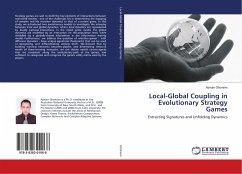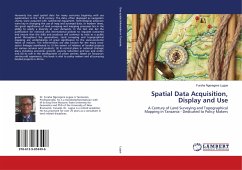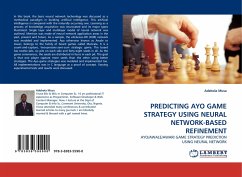Strategy games are said to distill the key elements of interactions between real-world entities - one of the challenges lies in determining the mapping of complex real life situation dynamics to that of a certain game. In this study, we introduced two evolutionary models to investigate the interplay between local and global dynamics, where local dynamics are represented by locally pairwise interactions. In the mixed game model, the global dynamics are modelled by an interaction on the population level, while modelled by a globally shared information in the information sharing model. Furthermore, we address the question of whether games - with different dynamics - have unique signatures (footprints) that can be used in recognizing and differentiating among them. We showed that by building winning networks between players, and determining network motifs of these winning networks, we can obtain motifs' counts signals that are consistent along the evolutionary path of the games, and sufficient to categorize and recognize the game's utility matrix used by the players.
Bitte wählen Sie Ihr Anliegen aus.
Rechnungen
Retourenschein anfordern
Bestellstatus
Storno








